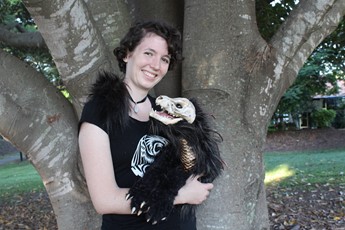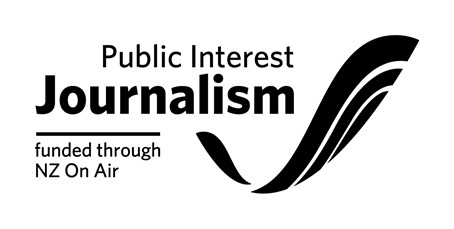“Autism is a spectrum that is experienced differently by all who have it. I experience
sensory overload and am prone to anxiety in new situations, and I need to rebalance.”
During April, the world celebrates Autism Awareness Month... celebrating the
differences and promoting public awareness for those living with Autism. The month is
huge for awareness as people are encouraged to get involved or support the autism
community. In Aotearoa, over ninety thousand people are affected by the
neurodevelopmental condition - supporting Autism Awareness Month will educate the
community about how we can provide for Autistic people and their support network.
One voice raising awareness of autism is that of our good friend Sonja. Read on to find
out about her authentic first-hand perspective on how living with Autism affects her life.
Sonja also shares about being part of Expressions of Autism and how they work
towards increasing understanding of Autism.
When twenty-three-year-old Sonja Howard, was diagnosed with Autism at age 12, she
was relieved to know all her experiences she called ‘not normal’ were because she has
Autism. Sonja grew up in Australia and moved to New Zealand in 2020 doing contract
work with Weta Workshop. Explaining her struggles with anxiety and the stress it
causes when put in an unexpected situation, Sonja tells us about the challenges of
dealing with a sensory overload when she encounters loud noises and how she deals
with it. “I am also fortunate to have a supportive group of friends who are happy to make
small adjustments, such as turning music down at gatherings or giving me space to
decompress if things get overwhelming”. Having Autism hasn’t been easy for Sonja as
she tells us that certain situations can make her hypervigilant and consistently on high
alert which can be exhausting.
Being involved with Te Ihirangaranga Takiwatanga- Expressions of Autism has a
profound impact on her life as she realises the importance of being open about the
realities of Autism and that by informing people about it, we can foster empathy.
This is her first campaign with Altogether Autism, and she is looking forward to future events and opportunities. At Altogether Autism, one of their strategic focuses is to use autistic voices and for their message to be heard, Sonja agrees to say “it is essential to listen to voices, spread the message of acceptance and celebrate differences and strengths”.
The translation of Te Ihirangaranga Takiwatanga - Expressions of Autism, is hard to
translate directly but similar to the vibrations you feel when the hair stands up on your
arm, goosebumps or that feeling when a movie moves you. Rangaranga is weaving by
going under and over. Autistics Aotearoa shares positive voices that belong to them, is
in charge of what they want to share, focuses on inclusivity, and teaches the community
to accept them for who they are.
To understand better the reality of living with Autism. Sonja recommends we start by
being willing to learn and that it’s imperative to show respect and kindness. She also
wants to be more involved in the hopes of raising awareness, saying, “none of us
should be judged.” I wanted to know her thoughts on what more we can do in promoting
awareness, and she believes that showing real autistic people will boost who they are.
She would also love to see more openly autistic characters in Media and Literacy,
saying, “Representation Matters”. We also need to make people aware that there is no
cure for Autism. Sonja wants people to help bring awareness to the cause by being
open to listening and supporting when they need it and also considering things from
different perspectives.
The challenges Sonja and all those who have Autism struggle with daily are why we
need to bring awareness to Autism and why we need to spread the news about Autism
Awareness Month. It’s important people understand what living with Autism is like and
what we can do to help this month. Simply by giving everyone the kindness and
empathy that they deserve. Not just this month, every month. Sonja says “And by being
willing to adapt environments to make them less disabling. Acceptance requires
understanding, education and advocacy in everyday life because people are terrible at
accepting what they don’t understand”.




